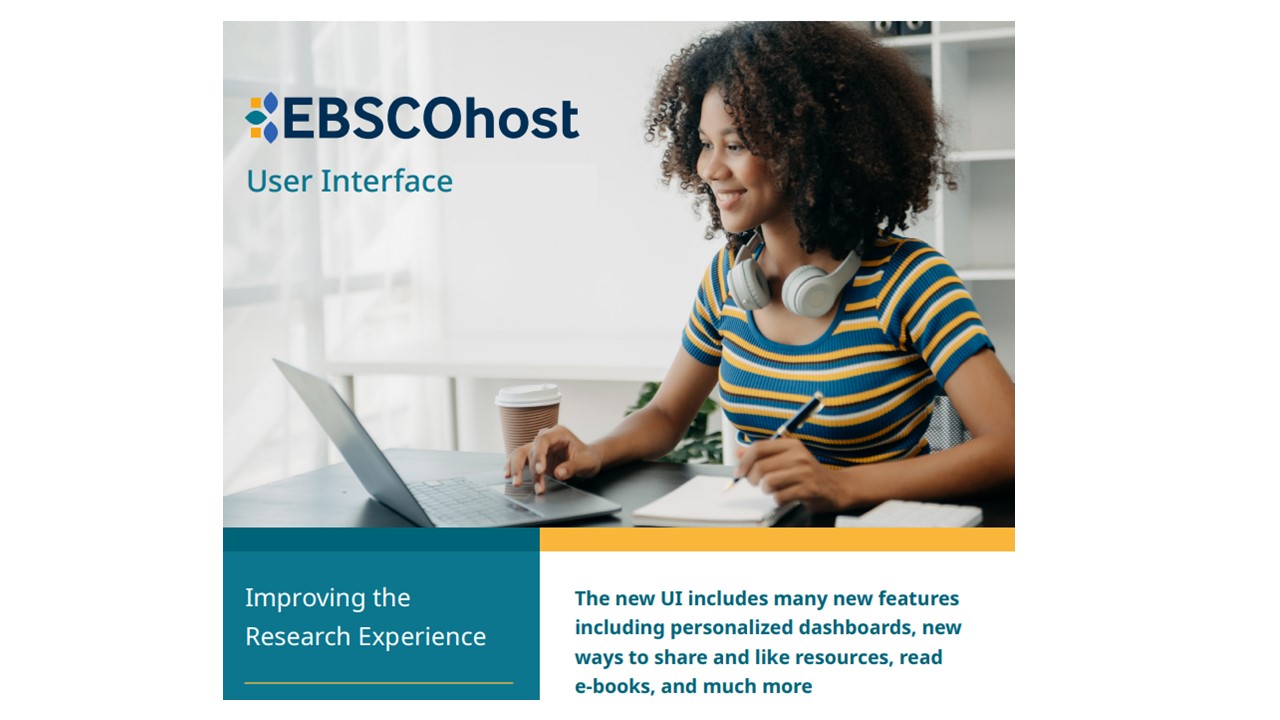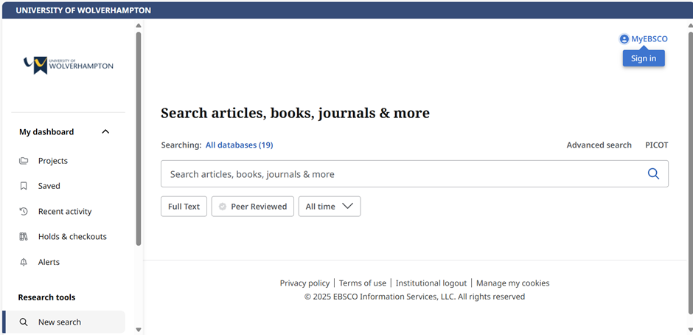Database Deep Dive: New EBSCOHost User Interface

EBSCO, who host many of our online databases, has been developing a new user interface to be more streamlined and accessible with additional features to aid the research process. On August 5th the new user interface will be rolled out to the EBSCO databases, which includes APA PsycInfo, CINAHL Ultimate, Medline, and SPORTDiscus, among many others.

In many ways the databases still work the same way with a basic search engine, an advanced search option, a specialised PICOT search, with filters and options to save articles and searches. The new interface has many of the same features and functions as before but is intended to be more intuitive and more compatible with screen reader technology.
Some notable differences and new features in the new UI include:
- Segmented results: Your results will come up split into tabs of “all results”, “evidence-based care sheets”, “quick lessons” and “video”. Video options are no longer inserted in the middle of your article options, now you can go to the tab specifically to check them out.
- 12 Advanced search bars: You can add up to 12 different search bars when doing a single advanced search .
- Last searched term remains in search bar: There is the option to have the search bar remember your last search as you flick between different screens looking at results or jumping to your saved searches, making it easier to edit your search parameters rather than typing them out from scratch every time
- Natural Language option: There will be an option to turn on Natural language searching where you can type a question or statement into the search bar rather than just using key words, more akin to how one would use a google search.
- Search History customisation: There is the ability to edit your past searches, to combine search results, and download up to 500 searches at a time.
EBSCO is committed to continuing improvement on their interface and intends to roll out even more enhancements and new features in October 2025.
We have an FAQ page for anyone with further questions about the interface in general.
If you are looking for more resources on how best to navigate academic databases head to our Library Skills for learning page and check out some of their resources.
For more information please contact the Corporate Communications Team.


/prod01/wlvacuk/media/departments/digital-content-and-communications/images-18-19/iStock-163641275.jpg)
/prod01/wlvacuk/media/departments/digital-content-and-communications/images-2024/250630-SciFest-1-group-photo-resized-800x450.png)
/prod01/wlvacuk/media/departments/digital-content-and-communications/images-18-19/210818-Iza-and-Mattia-Resized.jpg)
/prod01/wlvacuk/media/departments/digital-content-and-communications/images-2024/241014-Cyber4ME-Project-Resized.jpg)
/prod01/wlvacuk/media/departments/digital-content-and-communications/images-2024/Business-School-leadership-conference-14-July-1-resized.jpg)
/prod01/wlvacuk/media/departments/digital-content-and-communications/images-2024/Michael-Ryan-teaser.JPG)